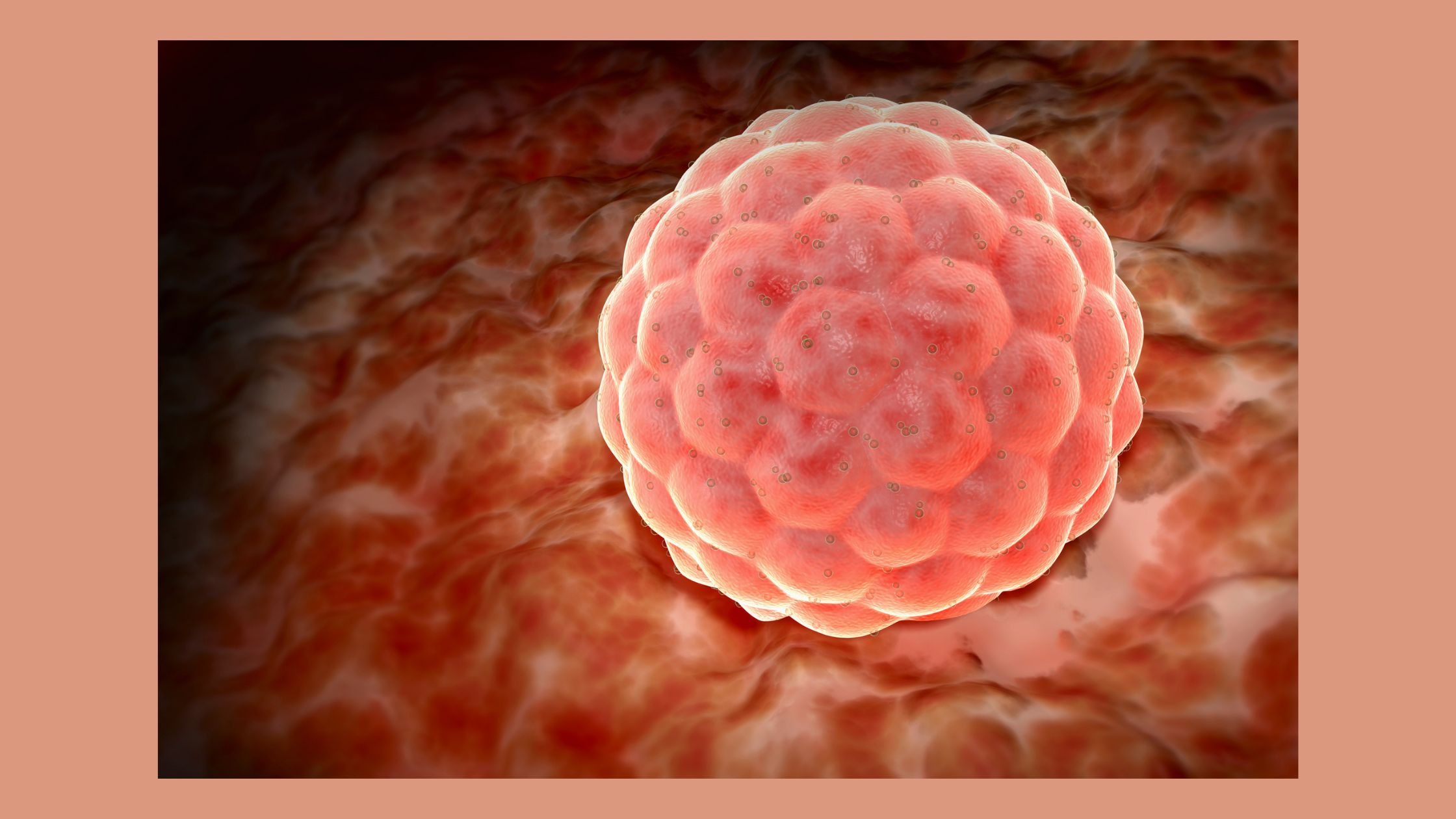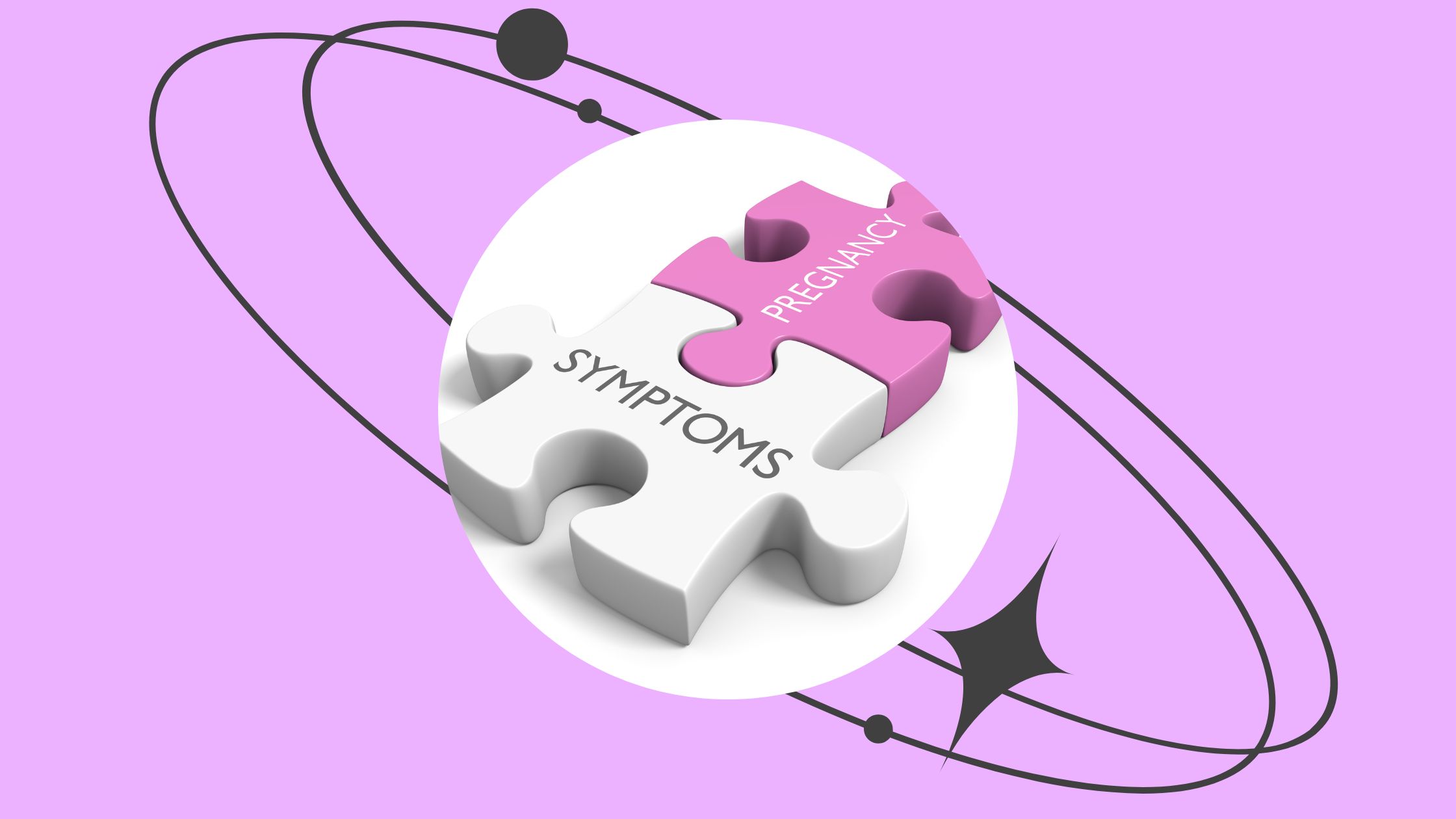Are you embarking on your TTC journey? In this article, we’re exploring the complexities of 1 DPO signs and symptoms. So, what exactly happens at 1 DPO?
The journey of conception is a fascinating and intricate process, where every day past ovulation (DPO) carries its signs and symptoms.
We’ll closely monitor the body’s changes you may experience during this two-week wait (TWW) between ovulation and your missed period. Doing so can provide insights into the potential signs of early pregnancy.
Our journey commences at 1 DPO or one-day past ovulation.
Sperm can fertilize an egg within 24 hours of its release, and now the waiting game begins.
Let’s uncover everything there is to know about 1 DPO.
What Does 1 DPO Mean?
DPO, an acronym for “days past ovulation,” means the number of days that have passed since ovulation.
The abbreviation DPO is frequently used during the two-week waiting period to denote each passing day. If, for instance, ovulation takes place on a Monday, the following day would be referred to as 1 DPO.
For those trying to become pregnant, the optimal time for intercourse to maximize conception chances is during the fertile window – when you’re ovulating.
While each woman’s cycle can differ, ovulation typically happens place around the 14th day of the menstrual cycle.
The subsequent days after ovulation (roughly days 15-28) constitute the luteal phase of the menstrual cycle.
There are two potential outcomes during this phase:
- If the egg gets fertilized by sperm, it travels down the fallopian tube, embeds itself into the uterine wall, and starts developing into a baby.
- If the egg remains unfertilized, your body reabsorbs it, preparing for your upcoming menstrual period.
Thus, 1 DPO indicates one day after this prime fertility period, essentially a day after attempting conception through intercourse.
This metric holds significance for two primary reasons:
- It helps determine the optimal period for pregnancy tests – generally recommended no earlier than 12 DPO.
- It assists in monitoring and discerning potential early pregnancy symptoms.
What Can You Expect at 1 DPO?
So, what’s cooking at 1 DPO? Well, to be frank, not much. It’s like waiting for water to boil – you feel something’s happening, but it’s too early to tell.
When you’re trying for a baby, every little twinge and tweak has you wondering, “Is this it? Am I pregnant?” But most of what you’re feeling right now is just your body doing its regular thing post-ovulation.
Around this time, your body pumps out more progesterone which can cause some 1 DPO symptoms.
And while some signs might look like early pregnancy red flags, they can also be your body’s heads-up that Aunt Flo’s about to visit rather than an actual bun in the oven. This can make it hard to distinguish early pregnancy symptoms from PMS.
Early Pregnancy Symptoms at 1 DPO
Each pregnancy experience varies — while some women might notice symptoms just a day after ovulation, others might not feel any changes until they receive a positive pregnancy test result.
Even if 1 DPO signs aren’t exactly screaming “baby on board,” here are the early pregnancy symptoms you might want to keep an eye out for.
1. Fatigue

If you’re suddenly yawning more than usual, don’t just blame it on a poor night’s sleep. It could be one of the early signs, and it intensifies in the days following ovulation.
Fatigue also ranks high among the most frequently mentioned pregnancy symptoms. Given the hormonal changes that come with pregnancy, it’s understandable if you feel exhausted!
2. Headaches

An increase in progesterone levels during pregnancy can lead to headaches. Following ovulation, there is a possibility that the balance can be disrupted due to an increase in blood flow to the uterus, which may result in a headache.
3. Mood Swings
The surge in pregnancy hormones can send your emotions on a rollercoaster. It could be a sign of early pregnancy symptoms if you find your feelings going haywire – happy one moment, angry the next, then you might be pregnant!
4. Breast Tenderness

Breast tenderness, discomfort, and heightened nipple sensitivity are often associated with pregnancy. This symptom arises due to the enhanced blood circulation and surge in pregnancy hormones.
5. Bloating, Gas, and Nausea
In early pregnancy, there’s a significant rise in the hormone progesterone. This hormonal surge can decelerate your digestive system, increasing gas and bloating and can also cause constipation.
6. Cramps
At 1 DPO, experiencing cramping in your pelvis, abdomen, or lower back is typical and is likely related to ovulation.
7. Changes in Cervical Mucus
Post-ovulation, the consistency of cervical mucus often transitions from a stretchy, egg-white texture to a denser, stickier feel.
8. Basal Body Temperature Changes
You can monitor this using a basic basal body thermometer. Typically, there’s a minor rise in resting temperature (0.5-1 degrees Fahrenheit) during ovulation.
If pregnancy occurs, this elevated temperature persists; otherwise, it declines. It’s best to measure BBT right after waking up.
What does 1 DPO feel like?
At 1 DPO, the body’s transformation is still in its early stages. The majority of women typically don’t experience any pregnancy symptoms.
While some women may keenly anticipate the earliest signs of pregnancy, changes are subtle at this point.
The fertilized egg has not yet initiated its journey to the uterus for implantation, so definitive symptoms may not yet be noticeable.
Instead, women may experience symptoms more akin to those felt during ovulation.
It’s common for women trying to conceive to be hyper-aware of their bodies and look for signs of potential pregnancy. However, while some symptoms like fatigue are associated with early pregnancy, they could also indicate an impending period.
Stay vigilant for symptoms like breast sensitivity, cramping, headaches, mood fluctuations, fatigue, cervical mucus, constipation, bloating, unexpected gas, or unusual nausea.
What is Implantation?

Implantation is a critical event in human pregnancy. It refers to the stage where a fertilized egg (blastocyst) travels down the fallopian tube and implants into the uterus. This process is significant as it sets the foundation for the embryo to receive essential nutrients and oxygen for its growth.
According to a 1999 New England Journal of Medicine study, implantation typically happens 6-12 days after ovulation. Most commonly, it occurs around 9 DPO.
However, the exact timing can vary for each woman and each pregnancy. Some women might experience implantation-related symptoms, such as light spotting or a slight cramp, but many do not notice any symptoms.
What Are the Signs of Implantation?
Implantation can lead to symptoms such as:
- Light bleeding (Implantation Bleeding): Spotting or light bleeding occurs about 1-2 weeks post-fertilization. Unlike menstrual blood, implantation bleeding is typically short-lived and lighter in color. Implantation bleeding might be mistaken for a menstrual period, especially since it can coincide with the expected date of a period. It usually transpires six to twelve days following the fertilization of the egg. Around 25% of pregnant women will experience implantation bleeding.
- Cramping: Cramping can indicate that implantation has occurred.
- Nausea: Some women might experience nausea as a sign of implantation.
- Bloating: Bloating can also be one of the symptoms indicating implantation.
- Sore Breasts: Hormonal changes early in pregnancy might result in sensitive and sore breasts. The Mayo Clinic also points out that breasts might become tender and swollen early in pregnancy due to hormonal changes.
- Headaches: Some women might experience headaches.
- Mood Swings: Hormonal changes during early pregnancy can also lead to mood swings.
Can Implantation Happen at 1 DPO?
It’s unlikely.
For those hoping for a positive sign, the 6-12 DPO window is the typical implantation timeframe.
Once implantation occurs, your body begins to produce the pregnancy hormone human chorionic gonadotropin (hCG), which is detected by pregnancy tests.
However, you’ll need to wait a few more days for hCG levels to rise enough to be detected by a test. But hang in there; good news might be around the corner.
Can You Take a Pregnancy Test at 1 DPO?
Although you might be tempted to take a pregnancy test at 1 DPO, it’s unlikely to yield a positive result even if conception occurs. This is because the pregnancy hormone hCG hormone levels are not elevated enough for detection. This hormone only starts production post-implantation.
For the most reliable outcome, it’s advised to test on or just after the day you expect your next period. Not seeing a positive result at 6 or even 12 DPO doesn’t rule out pregnancy.
A pregnancy test detects hCG in your urine; the hCG concentration must be sufficiently high in your system for a clear positive. So, while you can test earlier, it’s often best to wait for a more definitive answer.
Takeaway
- 1 DPO refers to “Days past ovulation,” marking one day after ovulation.
- The two-week wait (TWW) is the period between ovulation and the expected missed period.
- Monitoring this phase can hint at potential early pregnancy signs.
- During 1 DPO, it’s early for definitive pregnancy symptoms, though some might experience fatigue, headaches, mood swings, breast tenderness, bloating, cramps, and changes in cervical mucus.
- Implantation is when the fertilized egg attaches to the uterus, generally occurring 6-12 days after ovulation.
- Implantation can result in symptoms like light bleeding, cramping, nausea, bloating, and sore breasts.
- Implantation at 1 DPO is unlikely as the common window is between 6-12 DPO.
- Following implantation, the body starts producing the pregnancy hormone hCG.
- Taking a pregnancy test at 1 DPO is premature and will likely yield a negative result; waiting until the expected day of the next period is recommended for more accurate results.
Frequently Asked Questions (FAQs)
Do you count the day of ovulation as 1 DPO?
No, the day of ovulation is not counted as 1 DPO. Instead, the day following ovulation is considered the first-day past ovulation (1 DPO).
Can you get a positive pregnancy test at 1 DPO?
It’s highly unlikely to get a positive pregnancy test at 1 DPO. This is because the hCG hormone, detected by pregnancy tests, hasn’t reached a level high enough to be identified so soon after conception.
Is the day you ovulated the day you conceived?
While ovulation is a crucial part of the conception process, the exact day of conception isn’t necessarily the day of ovulation. Sperm can survive in the female reproductive tract for several days, so conception can occur days after ovulation if intercourse happens before ovulation.
How many DPO do pregnancy symptoms start?
Pregnancy symptoms generally begin around 6-12 DPO for most women. However, the exact timeline can vary based on individual factors, and some women might not experience symptoms until even later.
Can you feel pregnant after one day?
Feeling pregnancy symptoms just one day after conception is improbable. The body hasn’t had enough time to produce significant changes or hormonal shifts that lead to noticeable symptoms.
When is the right time to take a pregnancy test?
The most accurate time to take a pregnancy test is after the day of your expected next period. This allows the hCG levels in your body, if present, to reach a detectable level for the most accurate results.
References
Allen J. Wilcox, Donna Day Baird, Clarice R. Weinberg, Time of Implantation of the Conceptus and Loss of Pregnancy, The New England Journal of Medicine, June 10, 1999University of California San Francisco. Conception: How it works. (n.d.) https://www.ucsfhealth.org/education/conception_how_it_works/Hasan, R., Baird, D. D., Herring, A. H., Olshan, A. F., Jonsson Funk, M. L., & Hartmann, K. E. (2010). Patterns and predictors of vaginal bleeding in the first trimester of pregnancy. Annals of Epidemiology, 20(7), 524. https://doi.org/10.1016/j.annepidem.2010.02.006Cleveland Clinic. (n.d.). Implantation Bleeding: Causes, Symptoms & What To Expect. from https://my.clevelandclinic.org/health/symptoms/24536-implantation-bleedingMayo Clinic Staff. (2021, December 3). Symptoms of pregnancy: What happens first. Mayo Clinic. from https://www.mayoclinic.org/healthy-lifestyle/getting-pregnant/in-depth/symptoms-of-pregnancy/art-20043853
